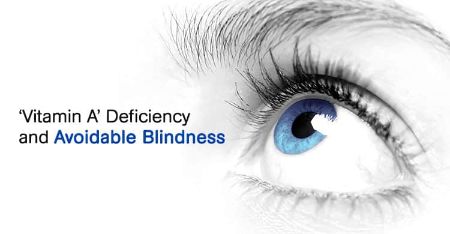 Loss of vision and eventual blindness are the primary signs of a vitamin A deficiency.
Loss of vision and eventual blindness are the primary signs of a vitamin A deficiency.
Vision loss frequently starts as a difficulty adjusting to night vision, also known as night blindness. Individuals with night blindness have poor night vision. But, if there is enough light, they can see normally. The conjunctiva (the layer on the white of your eye that helps lubricate your eye) dries out as the vitamin A shortage progresses. Ulcers on the cornea (open sores) then develop. If left untreated, it eventually results in blindness and vision loss.




